Are you constantly dreaming of a day on a beach with a fishing rod in hand?
Imagine yourself on the Florida Panhandle’s beaches, rod in hand, waves at your feet. It’s an adventure, and we’re here to guide you through it.
In this article, we focus on the beautiful Emerald Coast; a gem for surf fishing enthusiasts.
We’ll talk about the best times to fish and the right gear to use. You’ll also discover the variety of fish you can catch, from pompano to cobia.
And, we won’t forget about the important fishing regulations you need to know.
Whether it’s your first time or you’re a seasoned pro, you’ll find useful tips here. We’re all about sharing the joy of fishing on Florida’s stunning coast.
So, let’s start this journey together and make your next fishing trip unforgettable.
Best Time of Year for Surf Fishing on the Florida Gulf Coast
Well, while you can fish year-round, some months offer more action and a better catch.
Spring and fall are your golden tickets here for fishing season. The weather is pleasant, and the water’s just teeming with fish. It’s like the gulf is inviting you to cast your line.
In spring, the waters start to warm up, bringing in a diverse crowd of fish. It’s not just about the fish, though. The beaches are less crowded, making it a peaceful time for fishing.
Fall, on the other hand, is a treat too. The water’s still warm, and fish like pompano and redfish are abundant.
But hey, summer and winter have their moments too. Summer’s hot, and the beaches are busy, but early mornings can be magical.
Winter? It’s quieter, and while some fish head to warmer waters, others like the cooler temperatures.
The takeaway? Any time is a good time if you’re keen on fishing. Just choose what suits you best, pack your gear, and head to the Panhandle.
Essential Surf Fishing Gear
Now, let’s chat about the gear you’ll need for a successful day of surf fishing. It’s not just about grabbing a rod and heading out. The right equipment can make a big difference.
Don’t worry, though, you don’t need to break the bank.
First up, your rod and reel.
You’ll want a surf fishing rod, which is usually longer than regular rods. We’re talking about 8 to 12 feet here. This length helps you cast further into the surf.
For reels, go for a spinning reel. They’re easy to use and great for beginners.
Next, tackle. You’ll need various:
- Hooks – circle hooks around the 2/0 size work great
- Weights – Pyramid sinkers or Surf Sinkers if the surf is rough
- Leaders or Pre-Made Pompano Rigs
The right combination depends on the fish you’re after. Local bait shops can help you choose. And don’t forget a cooler to keep your catch fresh and a fishing cart for easy gear transport.
If you’re new to this, consider a pre-assembled surf fishing kit. It’s a hassle-free way to start. For the pros out there, customizing your gear is part of the fun.
So, gear up and get ready. With the right setup, you’re all set for an exciting day of fishing on the Florida Panhandle.
Choosing the Right Bait and What You Can Catch
Surf fishing in the Florida Panhandle brings excitement to every cast, especially when you know what you’re fishing for. Let’s talk about some favorites:
- Pompano
- Whiting
- Redfish
- Cobia
- Sharks
- Stingrays
Knowing when to catch them and what gear to use can make your day.
Pompano is a sought-after catch, especially in spring and early fall. They love the warmer waters during these times.
For these feisty fish, try a medium-light surf rod. Bait-wise, they have a taste for:
- Sand fleas
- Shrimp
- Small crabs
- Artificial bait like Fishbites
A bit picky, but worth the effort.
Whiting is more laid-back. They’re around almost all year, but cooler months see them in abundance.
Lighter tackle is perfect for whiting. Small hooks with pieces of shrimp or worms are your best bet. They’re not as choosy, making them ideal for those just starting out.
Cobia season is a treat, peaking from late spring to early summer. These are larger, so you’ll need heavier rods and reels.
Live bait like crabs, pinfish, or eels are cobia magnets. Spotting and catching a cobia is an adrenaline rush!
If you want to go the artificial route then a cobia jig or Frank Helton original “Ding-A-Ling” is a must!
Lastly, stingrays are more common in the summer. They need heavy tackle due to their size and strength.
Larger hooks and bait like squid or cut bait are effective. Just remember, handle stingrays with care; they can be tricky.
Each fish brings its own challenge and charm. The right gear and bait can make all the difference. So, whether you’re after the agility of pompano or the might of stingrays, get ready for a rewarding fishing experience.
Understanding Local Fishing Regulations
When it comes to surf fishing in the Florida Panhandle, knowing the local regulations is as important as having the right bait.
Let’s demystify these rules so you can focus on enjoying your fishing trip.
First off, you’ll need a fishing license. This applies to both residents and visitors. You can easily get one online or at local bait shops.
It’s a small step that makes a big difference in preserving our fisheries.
Now, let’s talk about size and bag limits. These rules help maintain healthy fish populations.
Each fish species has its own limits. For instance, pompano and whiting have different size and quantity restrictions. Always check the latest regulations before your trip.
The Florida Fish and Wildlife Conservation Commission’s website is a great resource for up-to-date information.
Seasonal closures are another thing to keep in mind. Some fish species can only be caught during certain times of the year. This helps during their breeding seasons.
Adhering to these closures is crucial for sustainable fishing practices.
Lastly, remember that regulations can change. It’s a good idea to double-check before each trip. Following these rules not only keeps you on the right side of the law but also ensures that future generations can enjoy surf fishing just as much as we do.
Understanding and respecting these regulations means we all get to enjoy the beauty and bounty of the Panhandle’s waters. So, let’s fish responsibly and keep this tradition thriving.
Specific Regulations for Targeted Fish Species
For pompano, the good news is that they’re generally available for fishing year-round. However, always check for any temporary restrictions.
When it comes to keeping your catch, make sure the pompano is at least 11 inches long from the fork of the tail, and remember, you’re limited to 6 per person per day. This helps in maintaining their population.
Whiting is a more relaxed catch, with no closed season or minimum size limits. This makes them an excellent choice for fishing any time of the year. But remember, it’s always good practice to only keep what you need, ensuring sustainability.
When you’re aiming for cobia, note that they’re also available throughout the year. But keep an eye out for any seasonal changes.
Cobia must be at least 33 inches long to the fork of the tail. The bag limit is set at one per person or six per vessel, whichever is less, to prevent overfishing.
As for stingrays, they’re often caught unintentionally. There’s no specific closed season for them, but it’s crucial to handle and release them with care if caught. This practice ensures their well-being and the health of the marine ecosystem.
These rules, provided by the Florida Fish and Wildlife Conservation Commission, are key to responsible fishing. They help maintain the balance and health of marine life in the Gulf Coast.
So before you set out with your fishing gear, make sure to check the most current regulations. It’s all about enjoying the sport while preserving the natural beauty and bounty of the area.
Surf Fishing Hotspots Around Destin, FL
Destin, FL, is a paradise for surf fishing enthusiasts.
Here are some of the best spots in and around Destin where the fish are plentiful and the scenery is just as impressive.
Henderson Beach State Park
Picture yourself on a pristine, white-sand beach with emerald waters in front of you. Henderson Beach State Park is not only beautiful but also a great place for catching pompano, whiting, and redfish.
The park has ample space, so finding your own fishing spot is easy.
Okaloosa Island Pier
If you prefer pier fishing, Okaloosa Island Pier is a must-visit. It extends into the Gulf, offering deeper waters and the chance to catch a variety of fish, including cobia and king mackerel.
The pier’s environment also makes it a great place for beginners to learn the ropes.
East Pass (Destin Pass)
This area is where the Choctawhatchee Bay meets the Gulf of Mexico. It’s known for its strong currents, making it a hotspot for larger fish species.
Here, you might catch the elusive cobia or even a tarpon. It’s a bit more challenging, but the rewards can be big.
Discover the Joy of Surf Fishing in Destin, FL
Surf fishing in the Florida Panhandle, especially around Destin, is an experience of a lifetime. With stunning beaches, abundant fish, and friendly locals, it’s the perfect destination for your next fishing adventure.
Ready to cast your line into these beautiful waters? Book your trip with Sea Winder, where unparalleled local knowledge meets top-notch fishing expertise.
Looking to get off the shore and get in to some deep sea fishing? Don’t wait; plan your fishing trip of a lifetime with Sea Winder today!
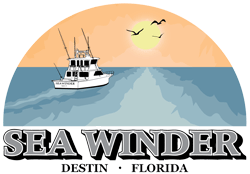

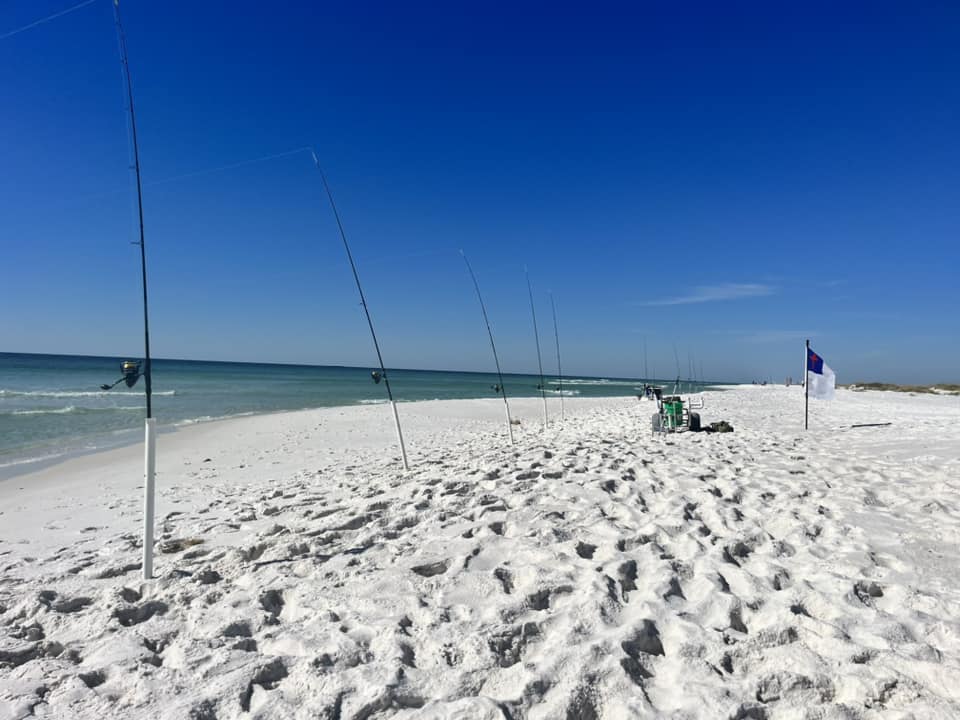
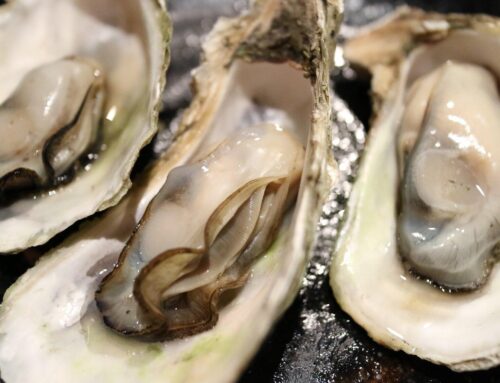
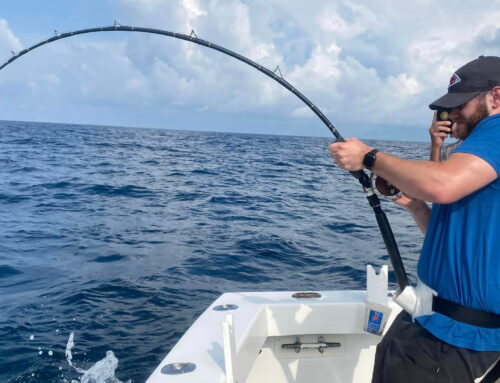
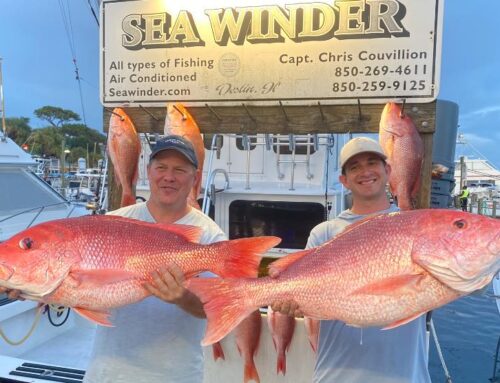
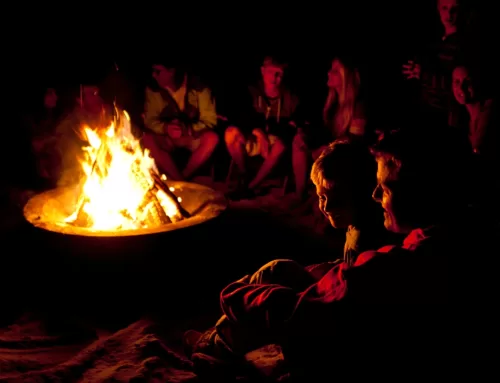
Hi. Is there such a thing as beach fishing guides.
Supply equipment, bait and local expertise and experience . I would assume I have to buy a license as I am from Michigan. That is an option that may be more affordable for some (me) not having the boat cost. The info you have on your site was one of the more informative ones. Thanks
Yes, there are a few reputable beach fishing guides in the Destin area. You should only need a shoreline only fishing license. Here’s some more information on Florida fishing licenses.